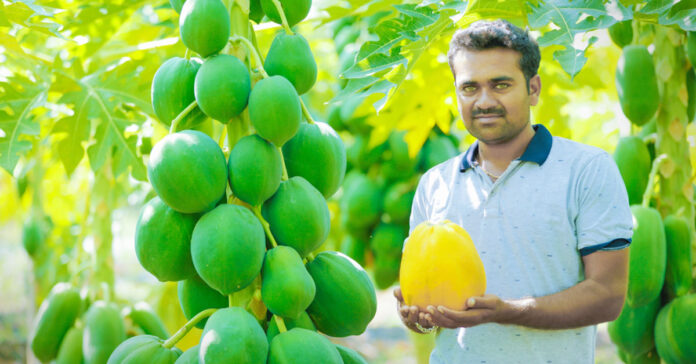Numerous distinct elements make up agribusiness marketing, largely based on the needs and size of the company. Compared to huge commercial farms that serve many locations and populations, small retail localized farms have fewer marketing requirements.
Whatever the situation, it is crucial for any business to advertise and get their goods and services in front of the proper customers to increase sales and expand.
As per the agricultural consultant, because agricultural products are so perishable, they can spoil if they aren’t sold right away, which might cause the farm business to suffer catastrophic losses.
Because traditional farmers have very high production expenses, perishability might be extremely terrible for them if they don’t adopt contemporary urban farming techniques like indoor vertical farming and smart agriculture.
When compared to indoor urban farming, factors including the cost of weeding, harvesting, planting, and labor all raise the cost of production and reduce the revenues from the produce.
In addition to weather-related factors, the abundance of pests and diseases also has an impact on crop yields.
Modern commercial urban farms, on the other hand, could have a lot of excesses that could be wasted and might need to sell more food to break even, recoup their initial investment, and continue operating their daily management functions.
Input and service providers, for example, face intense competition from other industries; as a result, if they want to grow, expand, and survive, they must extensively research the market and pick up additional clients.
In light of this, any agribusiness must have a sound marketing strategy so that they may expand by selling their products to existing clients and introducing them to new ones.
Marketing entails advertising and placing products and services in front of customers to encourage sales.
According to an agricultural consultant the four Ps of marketing are as follows:
1. Product:
This is the thing that the company sells to its clients. Does the company provide products or services? What stage of production are the goods in—raw or finished? If not, are they packaged? Do they have branding or not? How much are they sold for? Is the workmanship good? Do they satisfy the demands of the intended clients?
2. Price:
This is the final price at which the client purchases the firm’s products or services. The forces of supply and demand have a significant impact on price.
Prices will be high when supply is low and demand is high, but they will be cheap when supply is abundant and demand is low.
Before you can set prices for your goods and services, it is crucial to research the current market prices. If you overcharge for your produce while other farms are offering it for less, no one will buy it, and it will go bad, costing you a lot of money.
3. Place:
These are the avenues through which the agricultural industry sells its products and services. They can be any type of client point of sale contact, including markets, internet shops, chains of retail outlets like supermarkets, small-business owners’ shops, and more. These locations receive products from the agricultural company for sale.
4. Promotion:
Promotion is the actual method through which a company gets to present its products and services to its clients. It includes the procedures by which consumers learn about the items and how they will benefit them, ultimately influencing their purchasing decisions.
The agriculture marketing promotion tactics listed below can be used right away to help you profit, develop, and grow.
10 simple yet effective agriculture marketing and advertising techniques
1. Establish a presence online
In today’s highly digitalized world, having an online presence is the best method for any agribusiness to market itself before even needing to go out and hunt for clients. For a business to effectively sell its products and interact with clients online, it is crucial to create a business website, put it on yellow pages and online directories like Google My Business, use email marketing, and have social media sites.
With this, a company may connect with customers wherever they are, respond to their questions, conduct online sales, solicit customer feedback, manage orders, and even win over new clients.
2. Advertisements
Using paid web ads or social media ads like those on Facebook and Instagram, advertisements can be placed in local media such as newspapers, magazines, television, and radio. The information about the company’s products or services may be conveyed through aesthetically appealing photographs or videos. It could be a video of a farm consultant sharing knowledge at a nearby farm or an Instagram photo of the organic, fresh vegetables a farm offers.
To tell people about the products or services, text picture combination adverts can also be placed in newspapers, agricultural publications, and flyers.
3. Partnerships
To supply them with farm-fresh produce, agricultural consultant suggests partnerships can be formed with small enterprises and retailers including supermarkets, mini-grocery stores, and shops. Agribusinesses can benefit from partnerships by becoming the exclusive suppliers of their target clients, which helps to keep them as clients and produce consistent sales.
4. Public speaking
Public speaking and giving presentations about the company and what it offers at conventions, meetings of organizations, and concerts can aid in raising consumer knowledge of the goods. Another technique to spread the word about the company is through guest posting on blogs and other websites with loyal followings on topical material related to the business. The speaker or guest poster can then provide the audience with company information such as the address, product flyers, coupons, or freebies.
5. Business Branding
Compared to a business without a brand, one that has one is simpler to promote. A branded agribusiness stands out from other companies in the market thanks to its distinctive name, logo, and corporate colors and your agricultural consultant. These can also be added to letterheads, websites, social media platforms, business cards, and branded items to help customers distinguish your company from competitors.
After branding, a company can then offer extraordinary goods or services so that customers will continue to buy its branded products since they will be seen as great and associated with excellence.
6. Value augmentation
Because they are packaged, labeled, branded, and processed, value-added items are simple to market. As a result, they are of excellent quality.
People enjoy nice goods and will spend money on them. Promotion is made simpler by packaging goods attractively, processing them, and flavoring products to tempt customers to buy.
7. Exhibitions
Agricultural trade exhibitions and events are excellent venues for agribusinesses to showcase their goods and services to potential customers. The good news is that this exact target market is what the company needs and will eventually turn into consumers. Additionally, flyers can be distributed to visitors to the exhibition stands, providing them with contact information for future use.
8. Distribute freebies and samples
This is crucial for newly launched agribusinesses. People who have tasted your items are more likely to become familiar with them and make recommendations when appropriate. If the free product meets their wants and tastes and, more importantly, if it is superior to competing products on the market, individuals may choose to purchase it to continue using it.
9. Provide reductions
Everyone desires to have that more cash on hand. For businesses in the agriculture industry who want to increase sales or run a clearance sale for their perishable goods, offering discounts can be a fantastic marketing and promotion technique.
In addition to providing more for less money, bulk buyers can arrange free transportation to their locations.
10. Connect with experts in your field.
A network may take a company to unimaginable places. A company may readily market its products and services globally if it has a robust network. The contacts can be leveraged to facilitate distribution and close deals that increase revenue and the company’s growth.
Reasons Indian Farmers Need Agricultural Consultant
Only recently have farming businesses begun to embrace the concept of hiring Indian agricultural consultant services. Nearly 50% of the country’s employable population is employed by the agriculture sector, which contributes 18% of the country’s GDP. However, the industry has lagged in recent years in terms of utilizing new technologies and procedures. In the future of Indian agriculture, agricultural consultant for the sector will be important.
Here are the justifications for hiring an agricultural consultant for your farming enterprise.
Learn About Market Dynamics From The Agricultural Consultant
Even though farming may appear to be a static industry, market dynamics are always shifting. A consultant should help you effectively navigate your business difficulties by sharing his in-depth expertise and experience in your particular industry.
Recommendations from agriculture consultants are based on current and projected market trends. You can beat out your rivals by using the knowledge the agriculture consultant has discovered.
With The Agriculture Consultant, Acquire New Skills
A consultant is knowledgeable in their field. You can learn new skills and knowledge just by listening to the consultant and observing how they work.
Considering issues from different perspectives
Having a second set of eyes to examine your problem is another advantage of working with a farm consulting firm to assist you with your tasks. Many people tend to view a problem exclusively through one lens. Due to the expertise Gyaanmart has in agriculture consulting, we can dig beyond your straightforward issues and offer you answers for issues that you might not have ever considered.
One of the most reasonably priced and farmer-friendly agricultural consultancy firms in India is Gyaanmart. With the aid of a diversified group of scientists, operations, and technology experts, we offer top-notch agricultural consultant services across the nation. Get in touch with the Gyaanmart team right now if you’re searching for higher returns on your farming investments.



